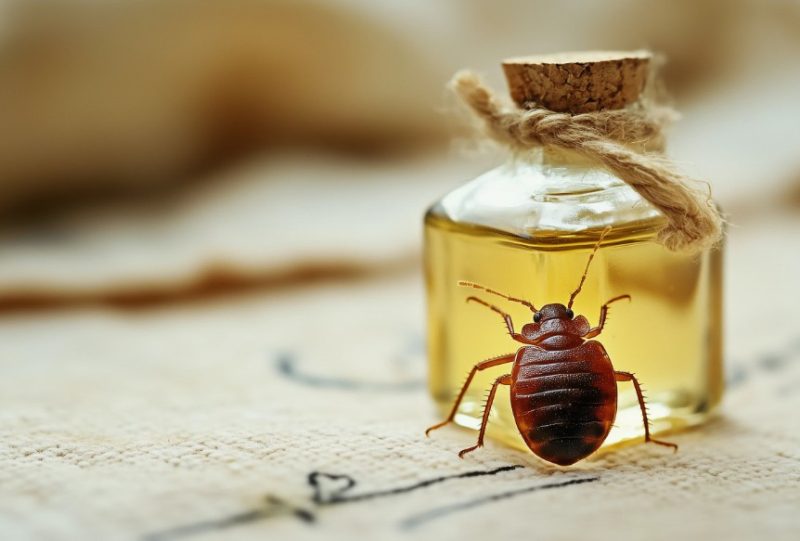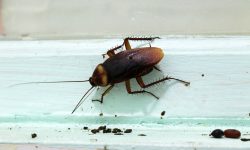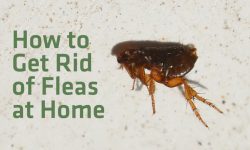Bed bugs are one of the most notorious household pests, causing sleepless nights and itchy bites for those unfortunate enough to encounter them. If you’ve ever found yourself dealing with a bed bug infestation, you may have come across various home remedies, one of which is vinegar. But does vinegar actually kill bed bugs?
In this article, we’ll delve into the science behind vinegar as a bed bug killer and provide you with the facts you need to make an informed decision.
Understanding Bed Bugs
Before exploring vinegar as a potential solution, it’s crucial to understand what bed bugs are and why they pose such a challenge. Bed bugs (Cimex lectularius) are small, flat, and reddish-brown insects that feed on the blood of humans and animals. They are nocturnal creatures, making them difficult to spot during the day.
Why Are Bed Bugs Hard to Eradicate?
Bed bugs are notorious for their resilience. They can hide in tiny cracks and crevices, making them difficult to detect. Their eggs are also incredibly resilient; they can survive in harsh conditions and are resistant to many common insecticides. As a result, bed bug infestations can escalate quickly, leading to extensive damage in homes and businesses.
The Role of Vinegar in Pest Control
Vinegar, particularly white distilled vinegar, has gained popularity as a natural cleaning agent and pest control solution. Many people wonder if vinegar can effectively eliminate bed bugs. Let’s look at how vinegar affects these pests and whether it can be a viable solution.
How Does Vinegar Affect Bed Bugs?
Vinegar is an aqueous solution of acetic acid, typically composed of about 5% acetic acid and 95% water. The acidity of vinegar is what makes it potentially effective against insects like bed bugs.
Acidity and Its Effects
The pH level of vinegar is around 2.5, making it quite acidic. This acidity can disrupt the nervous system of bed bugs, causing paralysis and eventually death when sprayed directly on them. Vinegar acts as a contact insecticide, meaning that it must come into direct contact with the bed bugs to be effective.
Does Vinegar Kill Bed Bugs?

Yes, vinegar can kill bed bugs upon contact. However, it’s essential to recognize its limitations. While vinegar may kill individual bed bugs, it is not a comprehensive solution for eradicating an infestation. Here are some key points to consider:
Short-Term Solution
Vinegar is effective as a short-term solution. When sprayed directly on bed bugs, it can kill them quickly, often within minutes. However, it does not provide long-term protection or address the root of the problem.
Ineffective Against Eggs
One of the significant drawbacks of using vinegar is its ineffectiveness against bed bug eggs. Bed bug eggs are encased in a hard shell that vinegar cannot penetrate. As a result, while you may eliminate adult bed bugs, the eggs will hatch, leading to a reinfestation.
Contact Insecticide
Vinegar must be sprayed directly onto the bed bugs to be effective. This means you need to locate and target the bugs in their hiding spots. Since bed bugs are excellent at hiding, this can be a time-consuming and challenging task.
How Long Does It Take for Vinegar to Kill Bed Bugs?
When vinegar is sprayed on bed bugs, they typically begin to die within minutes. However, this quick action only applies to those that are directly sprayed. For a thorough approach to treating a bed bug infestation, continuous application and monitoring are necessary.
How to Use Vinegar Against Bed Bugs
If you decide to use vinegar as part of your bed bug control strategy, follow these guidelines for the best results:
Choose the Right Type of Vinegar
For maximum effectiveness, use white distilled vinegar. It has a higher acidity level (around 5%) compared to other types of vinegar, such as apple cider vinegar, which may not be as potent against bed bugs.
Protect Yourself
Before spraying vinegar, it’s essential to take safety precautions. The acidity of vinegar can cause irritation to your skin and eyes. Wear protective goggles and gloves to prevent any discomfort. If you have sensitive skin, consider wearing long sleeves and pants to minimize exposure.
Identify Affected Areas
To effectively use vinegar against bed bugs, you need to identify their hiding spots. Bed bugs tend to hide in:
- Mattress seams
- Bed frames
- Furniture crevices
- Baseboards
- Carpets
Apply the Vinegar
Use a spray bottle to apply the vinegar directly onto bed bugs and their hiding places. Make sure to saturate the area thoroughly. It’s also wise to test a small, inconspicuous area first to ensure the vinegar won’t damage any surfaces or fabrics.
Repeat the Process
Vinegar is not a one-time solution. To ensure you are effectively combating the infestation, you need to spray the affected areas regularly. Aim to apply vinegar once a day for at least a week or until you no longer observe any signs of bed bugs.
Combine with Other Methods
While vinegar can kill bed bugs on contact, it’s essential to recognize that it is only one part of an effective bed bug management plan. Combine vinegar use with other methods for a more comprehensive approach.
Limitations of Using Vinegar for Bed Bugs
While vinegar can serve as a useful tool in your pest control arsenal, it’s crucial to be aware of its limitations:
Not a Standalone Treatment
Vinegar is not a standalone treatment for bed bug infestations. While it can kill individual bugs, it will not eliminate the entire population or address the issue of bed bug eggs.
Strong Odor
The pungent smell of vinegar can be overwhelming, particularly if you are spraying large areas. While the smell dissipates over time, it can be unpleasant during treatment.
No Long-Term Solution
Vinegar does not provide long-term protection against bed bugs. As mentioned earlier, while it can kill bugs on contact, it does not repel them or prevent future infestations.
Alternative Solutions for Bed Bug Control
If you’re facing a bed bug problem, there are several other methods and products you can consider in addition to vinegar:
Diatomaceous Earth
Diatomaceous earth (DE) is a natural, chemical-free powder made from the fossilized remains of tiny aquatic organisms called diatoms. It works by dehydrating bed bugs, effectively killing them over time. While DE is not an instant solution, it can be a helpful part of a comprehensive bed bug control strategy.
Essential Oils
Certain essential oils are known for their pest-repelling properties. Oils like lavender, tea tree, and peppermint can be effective against bed bugs. However, it’s essential to use them in conjunction with other treatments, as their efficacy may vary.
Vacuuming and Steam Cleaning
Vacuuming is a highly effective way to eliminate both bed bugs and their eggs. Ensure that you vacuum thoroughly, including crevices and corners where bed bugs may hide. Dispose of the vacuum bag immediately to prevent any surviving bugs from escaping back into your home.
Steam cleaning is another effective method, as bed bugs cannot survive temperatures above 140°F (60°C). Use a steam cleaner on surfaces like mattresses, carpets, and upholstery to kill bed bugs on contact.
Professional Pest Control Services
If you are dealing with a significant bed bug infestation, hiring a professional pest control service may be the best option. Professionals have access to more potent treatments and have the experience necessary to effectively eradicate bed bugs from your home.
Final Thoughts
So, does vinegar kill bed bugs? The answer is yes, but with significant caveats. Vinegar can kill bed bugs on contact due to its acidity, making it a useful tool for addressing isolated incidents. However, it is not a comprehensive solution for a bed bug infestation and should not be relied upon as the sole method of control.
If you choose to use vinegar, combine it with other treatment methods, such as vacuuming, steam cleaning, and possibly seeking professional help for severe infestations. By taking a proactive and multifaceted approach, you can successfully reclaim your home from bed bugs and ensure a good night’s sleep.






